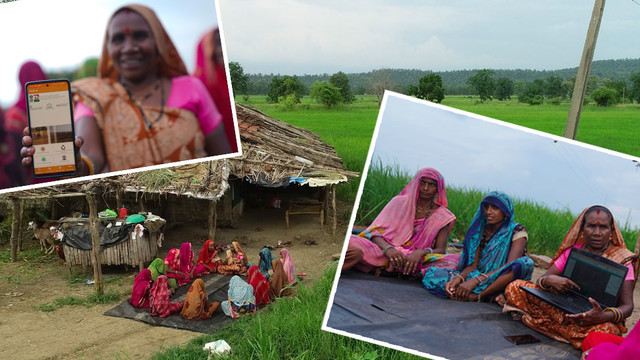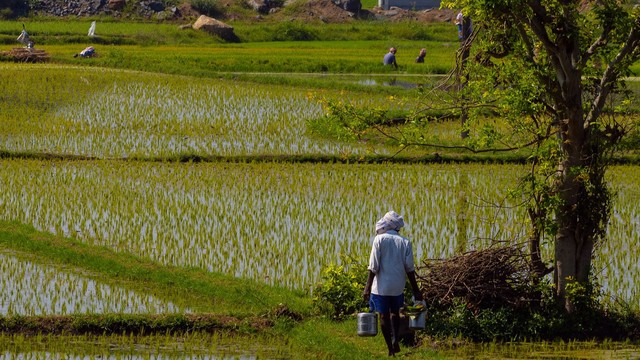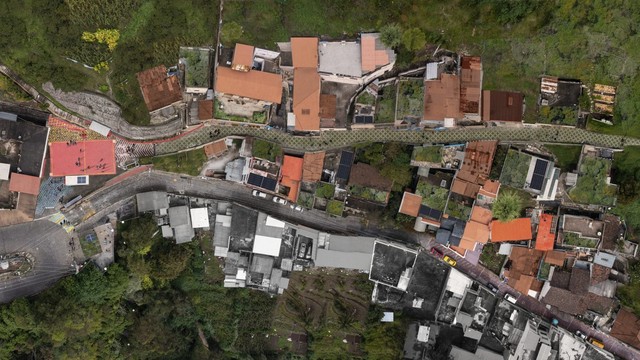Indigenous farmers from Peru, China and Bhutan agree to share seeds for climate adaptation
In the spirit of the International Year of Family and Peasant Farming, indigenous mountain farmers from China, Bhutan and Peru have agreed to share seeds in an effort to cope with global climate change.

Local sheep varieties in the Potato Park, Peru, where an agreement was recently forged to share indigenous crop varieties and knowledge about how to grow them in different climates and landscapes (Photo: IIED)
Naxi peoples from Meiquan and Stone Village of Lijiang, Yunnan, China, Monpa and Ura people from Bhutan, and Quechua and Q'ero peoples from Parque de la Papa and the Q'ero Ayllu from Cusco, Peru, initiated a unique long-term partnership to share indigenous crop varieties and knowledge about how to grow them in different climates and landscapes. This cooperation is a crucial step in their efforts to maintain resilient biodiverse food systems, seed security and food sovereignty.
The agreement was forged at an international meeting that took place in the Potato Park, Cusco, Peru on 26 April to 2 May, 2014 when these indigenous communities exchanged knowledge, experiences and synergies.
"This partnership represents a unique alliance forged by indigenous peoples to overcome the threats to agriculture and food security in a changing climate," says Alejandro Argumedo, Director of Asociación ANDES, one of the event organisers. "It also promotes the realisation of farmers' rights and strengthens the important links between agrobiodiversity, cultural heritage and sustainable development."
The Potato Park exchange marked a critical first step in this global partnership, one that is expected to yield enhanced resilience, food diversity, capacity and information sharing between these distant and unique mountain communities that are already adversely affected by changes in climate.
"Although our communities are half a world apart, they share similar concerns to preserve crop diversity for sustainable food security and climate change adaptation for their communities," says Yiching Song, from the Center for Chinese Agricultural Policy of the Chinese Academy of Science. "Communities are stronger working together than apart."
Unique to this partnership is the strong spirit of collaboration and benefit-sharing between farmers and scientists for mutual exchange of knowledge and capacity building, and increased understanding of each other's cultures.
The exchange in the Potato Park was followed by visits by the farmers to the International Potato Center in Lima to share ideas on the storage of genetic resources and exchange of germplasm between the farming communities, and to Peru's National Institute of Agricultural Innovation to discuss the implementation of agrobiodiversity conservation areas.
"Achieving sustainable food security in a world with a growing population, changing diets and a changing climate is a major challenge," says David Ellis, head of International Potato Center's Gene Bank. "Alliances among farming communities and scientists, such as this one, are a critical element in the response to these challenges." The Potato Park communities, Asociación ANDES and the International Potato Center will support the exchange of plant materials between the different communities.
These organisations have worked in partnership since 2004 through a "Repatriation Agreement" to return native potatoes in the CIP collections – which were collected in and around the Potato Park communities over the past 40 years – to the Potato Park communities. Knowledge gained from this partnership will be central to the transfer of good practices for the exchanges among the indigenous communities. CIP will work with the communities to facilitate the exchange of repatriated materials with the communities in Bhutan and China.
This global partnership will be further strengthened through the Mountain Communities Initiative, which will bring together 14 indigenous communities from 10 countries in Bhutan on 26–31 May to discuss climate change impacts and identify responses needed. This initiative is being organised by ANDES, IIED and the International Society for Ethnobiology.
Contacts: Alejandro Argumedo (alejandro@andes.org.pe), or Krysytna Swiderska (Krystyna.swiderska@iied.org).



